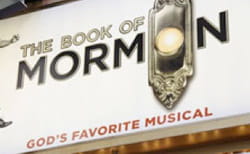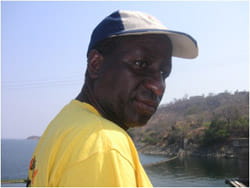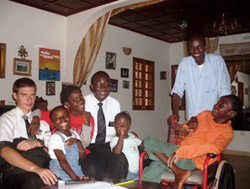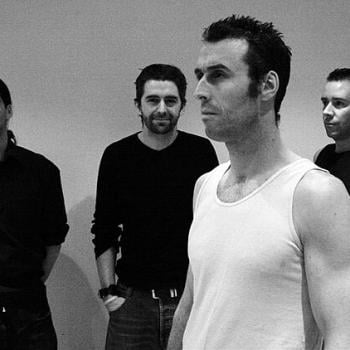Editor's Note: This is the first in a series of essays that examines the real world of Mormon missionaries and the real Elder Price. Read the author's Introduction.
 On June 12, 2010, I emailed Elder Chiloba Chirwa, telling him that I had just received a gift from his mother—a copper plate with the name ZAMBIA on it. Two days later, I got an email from Fiona, Elder Chirwa's sister: "Jacob has been ill and has passed away today. It is completely devastating, but we are staying strong and know that we will be reunited as a family again."
On June 12, 2010, I emailed Elder Chiloba Chirwa, telling him that I had just received a gift from his mother—a copper plate with the name ZAMBIA on it. Two days later, I got an email from Fiona, Elder Chirwa's sister: "Jacob has been ill and has passed away today. It is completely devastating, but we are staying strong and know that we will be reunited as a family again."
Elder Chirwa had lost his father. I emailed him immediately, starting with the subject line "I already know."
Now the missionary companions—this "band of brothers"—was called upon to mourn with their friend.
Elder Lisowski described the scene in the missionary apartment:
I found out the same day he did, before he ended up coming home. I tried to make the apartment as comfortable as possible and just figure out how I could help. He came in kind of shell shocked, and eventually told us what had happened. I've just spent the past couple of days sitting in his room whenever he's there. I'm not surprised that you know, either. I actually talked with Chirwa a little bit about it. "What do you think Sister Young is thinking right now?" His response was along the lines of "There's no way she knows." So I gave him a look which in essence said, "Sister Young . . .not knowing something?"
 |
| Jacob Chirwa in a casual moment |
I was amazed at the ways I had been woven into Elder Chirwa's life, without ever having met him. Regardless of the physical distance between us, we were bound in a relationship that called upon us to care for one another. He was my brother, my son, my friend.
"It's hard for me to hold back tears right now," he wrote to me. "We should be grateful for the lives that have touched ours. I am grateful for my father. I was blessed to be his son."
As it happened, I had a gift for Elder Chirwa, though I had not anticipated it would come into use now, or that it would serve as a comfort to a grieving missionary. Months earlier, I had interviewed Jacob Chirwa via email, fascinated by his knowledge of African literature and curious about LDS art in Zambia. It took him awhile to answer my questions, because he was studying in Finland, the very place where my own father had served his mission. When he replied, he was thoughtful and direct:
I have as yet to see any form of artistic manifestation in the church around us. I have always felt that there hasn't been enough encouragement for the local artist to showcase their talent. One reason for this is the belief inculcated in the people that the only approved art manifestations are the ones coming from Utah. And so we sit to watch videos of conversion stories as our missionaries do their work. This is well and good but I feel that watching a local missionary at work in any outside place would impact our youth.
The fact that Jacob's own son was serving as a missionary in "an outside place" made his observation poignant and personal. Indeed, Elder Chirwa would make an inspiring subject for a Church video or a film. Having already suffered with malaria and chicken pox, he was now bearing the burden of his father's death. He acknowledged the challenges with a very Mormon insight on the ways pain catalyzes our personal evolution: "There just seems to be no end to the obstacles on my mission. I can't help but wonder what the Lord is molding me into."
I sent Jacob's interview to Chiloba.
He could have returned to Zambia for the funeral, but elected to remain where he was. He sent these words to be read at the memorial service:
 |
| Elder Chirwa and Elder Lisowski with a family in Pointe Noire |
I am realizing quickly that the comfort of the Spirit is not only a voice telling you all will be all right, but it is a deep, even limitless understanding of eternal truths. The Spirit tells to trust in the knowledge of God, giving us understanding of His omniscience. It also helps us understand the time-defying state of forever—that perspective which we call Eternal. In this comforting scope of understanding, death is a mere temporal separation . . . I love you all. I am with you in spirit. I love my father and all he was and did. Let us remember him, let our hearts not be broken but filled with love and appreciation for Jacob Chirwa. Let us remember that God's grace is sufficient for us. He will see us through.




